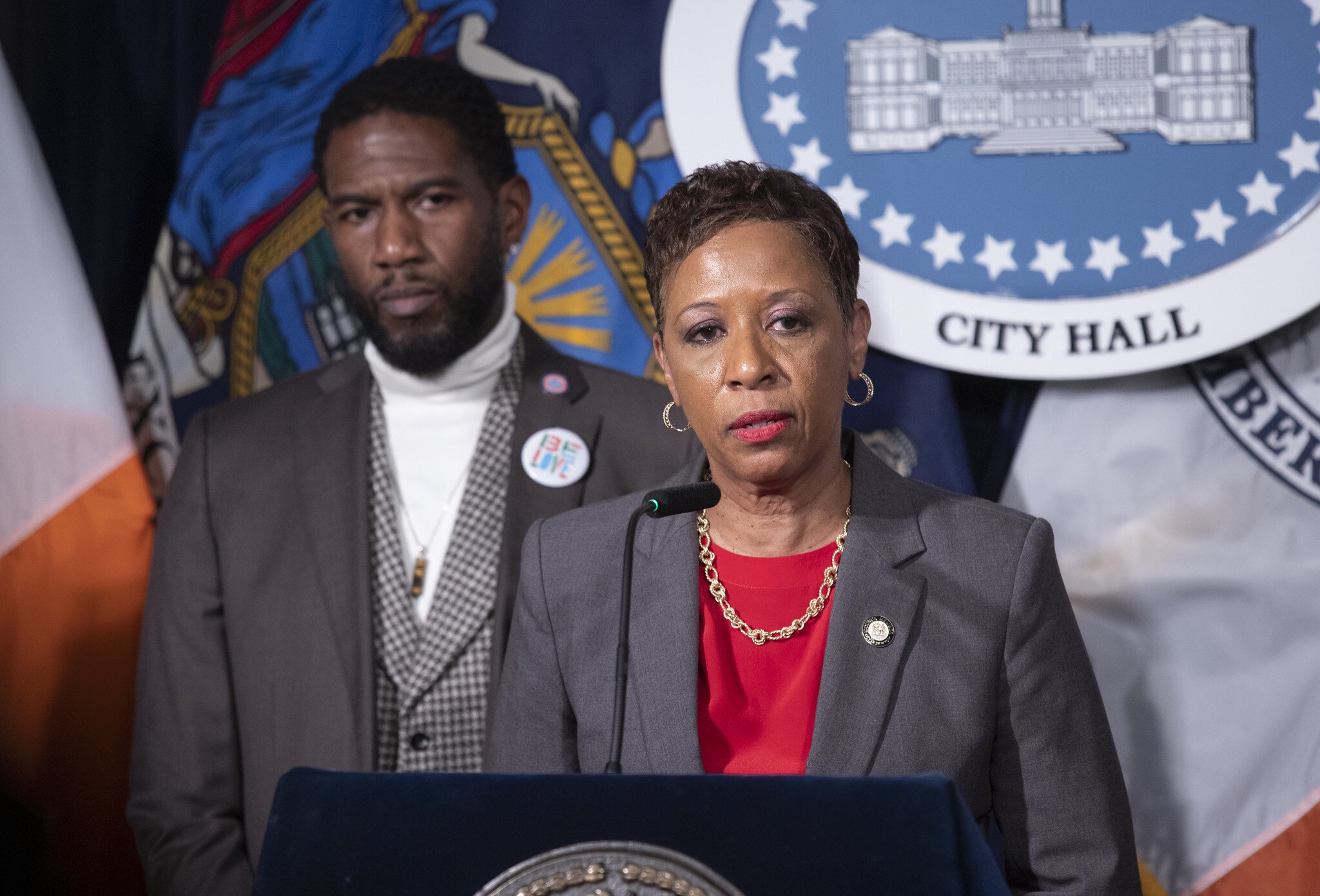City Council overrides mayor’s veto, enacts sweeping police reform and solitary confinement ban

Photo: John McCarten/City Council
The New York City Council voted 42-9 to override Mayor Eric Adams’ vetoes of two significant criminal justice reform bills, marking a significant shift in the city’s approach to policing and corrections — the enactment of the How Many Stops Act (Int. 586-A) and a bill banning solitary confinement (Int. 549-A).
The two bills aim to address longstanding concerns about law enforcement practices and the treatment of incarcerated individuals in New York City.
“Today, the Council answered decades-long calls from communities most impacted by police stops and the harmful legacy of stop-and-frisk, to deliver much-needed transparency to policing and advance true public safety for New Yorkers,” said Council Speaker Adrienne Adams. “By collecting and disclosing data on investigative stops, the How Many Stops Act will bring forth a fuller picture of these encounters, fostering accountability and trust between the police and the communities they serve.”